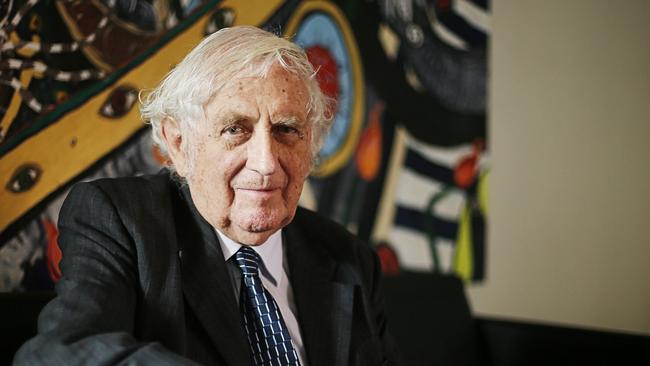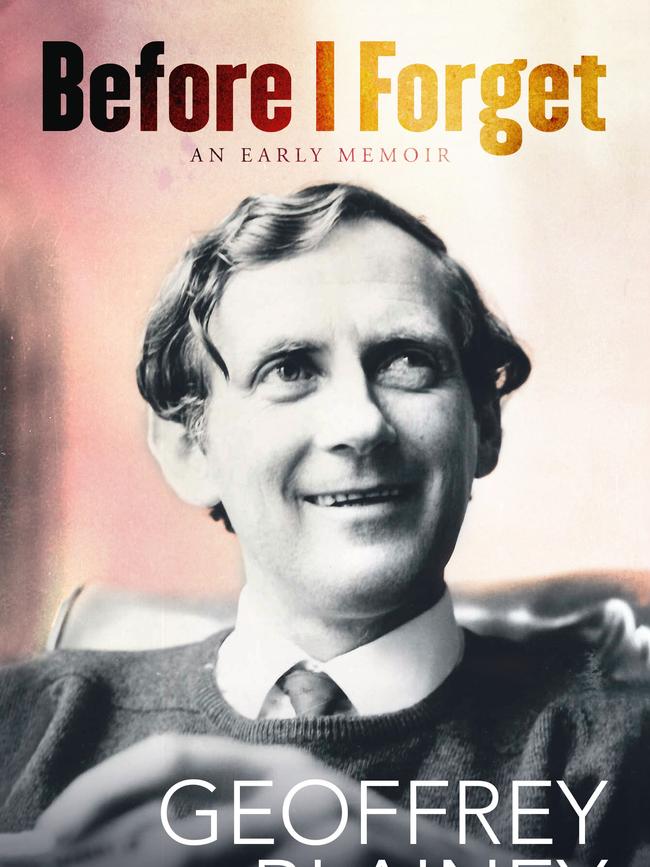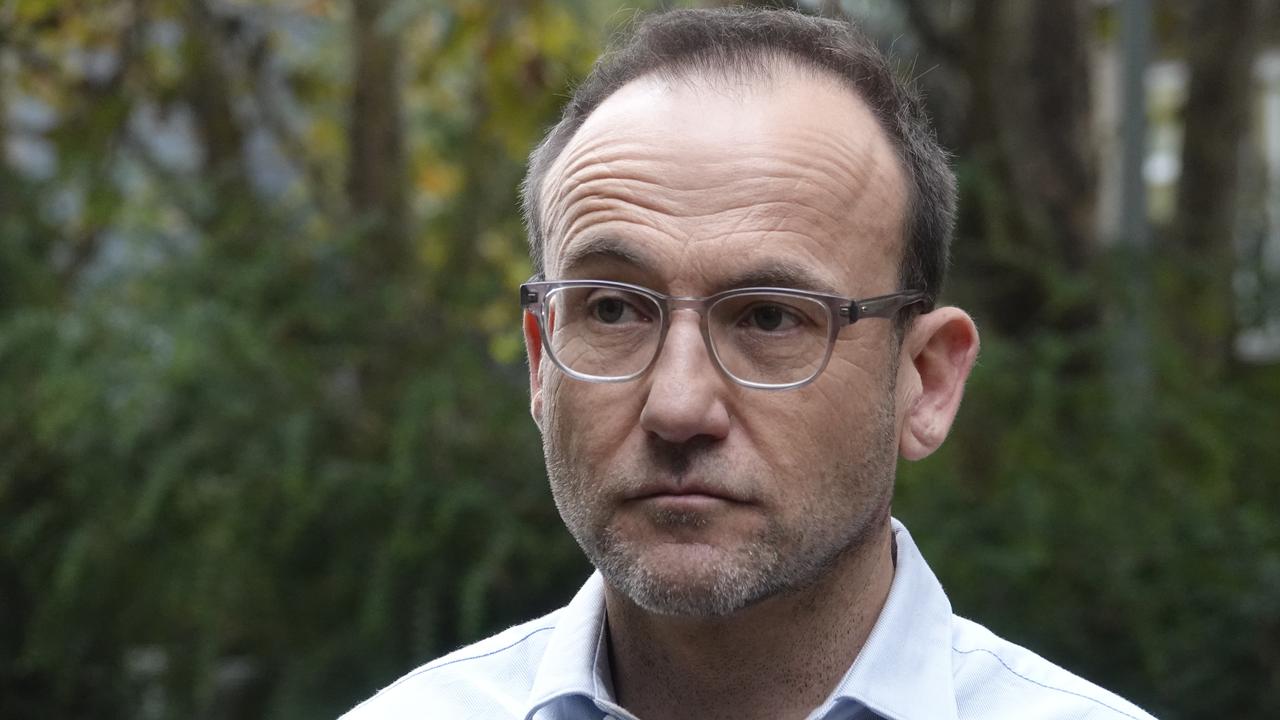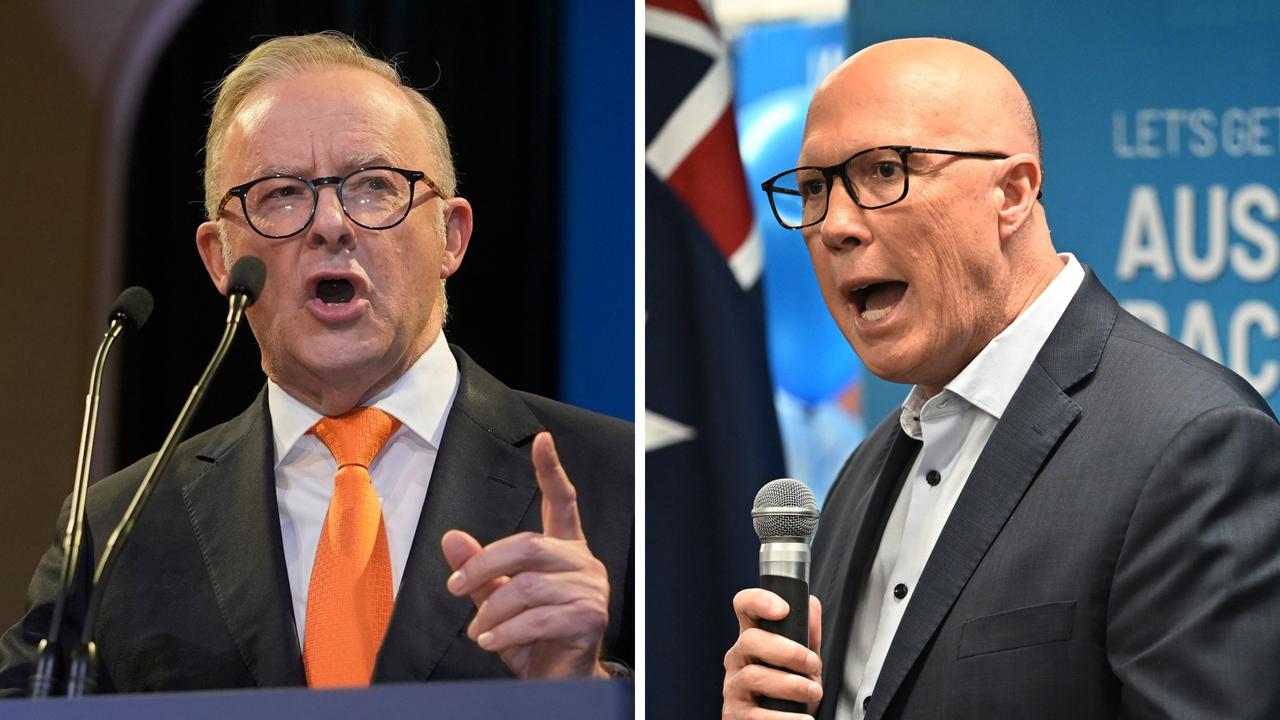Geoffrey Blainey says giving away citizenship too easily is a problem for our democracy
Noted historian Geoffrey Blainey says we give cititzenship away too easily to newcomers.

Noted historian Geoffrey Blainey believes Australia gives away citizenship too easily and that it creates a problem for our democracy.
Professor Blainey told a Sydney audience on Wednesday night: “Why should someone who has been in the country two or three years and does not know the language or the common discourse, why should they necessarily have a vote, if voting is compulsory?”

Last night, speaking from his Melbourne home, the 89-year-old said that the right to vote was “quite a difficult responsibility if you know very little about the society and the language of the society. After all, democracy is government by discussion and not to have the common language limits your ability to take part in that debate and to take responsibility for what happens in an election.
“Once you accept the idea that everyone can vote, you are really downgrading democracy because you are really saying that it doesn’t matter if it is hit or miss, it doesn’t matter if a considerable proportion of the population, whether they’re native-born or not, it doesn’t matter if they know what they’re talking about or not.”
Professor Blainey said that compulsory voting was now widely favoured in Australia, and would probably not be abolished.
“But we have to be wary of our tradition of compelling adults to vote on election day, especially when many know little or nothing about the national questions they are asked to vote upon,” he said. “That custom makes light of democracy.”
Professor Blainey’s initial comment was in answer to a question at a Sydney Institute event celebrating his new memoir, Before I Forget, which covers his life until the age of 40.
Last night, he did not resile from his answer but admitted to being concerned about sparking a controversy — although he has commented on the issue many times in the past.
“I am concerned, it’s very difficult to take part in these debates,” he said. “But when people ask you a question you’re almost honour-bound to try to answer them.”
Professor Blainey told the audience that governing in a democracy was difficult and he would not be surprised if democracies did not exist in the same numbers in 100 years’ time.
“Democracy depends not only on having parliamentarians but on 15 to 20 per cent of the population (taking responsibility for democracy),” he said. “It depends on that segment of the population but I think that segment is diminishing. I remain optimistic but I remain wary in assuming that democracy will go on and on.”
Professor Blainey recalled that he invented the phrase, the “black armband” view of history in the early 1990s to explain the change in approach to writing history. People had seen the phrase as anti-Aboriginal but it was “in no way anti-Aboriginal”. When he was younger, Australian history had been very congratulatory but later people felt ashamed.
“They felt the treatment of the environment was terrible and, in some ways, it was,” he said. “Aborigines, contrary to the statements that they made (at Welcome to Country ceremonies), were not really custodians of the land. No human being can be the custodian of the land. Nature is infinitely stronger than human beings.”
Professor Blainey said the phrase “the history wars” was exaggerated because all forms of intellectual activity involved debates “in which friendships are broken”. History was full of disagreements but in Australia, far more than in other countries such as the UK, history was an important arbiter in current topics such as the republic issue.
“All the major questions have a very strong historical component. That is especially true of Australia at the moment and especially true of Aborigines and their way of life and Europeans and their way of life,” he said.
“The saddest thing is not that the debate takes place but that important areas of evidence are not even considered safe to investigate, and that is wrong.”
In Aboriginal/European issues there was clear-cut evidence that was regarded “as out of bounds” because one side would not look at it.
“We hear again and again people say it’s terrible that Aborigines were not considered worth counting in the Census,” he said.
“I looked up Censuses since 1901 and there have been more Censuses that count Aborigines than count other Australians.
“How can you possibly allow a heresy like this to be undiscussable? That’s when the history war becomes a war rather than a serious discussions of the facts.”
However, Professor Blainey said his view was Australia was a “success story”.
“(There) are many failings but Australia, by and large, is a success story and that’s why we have such an immigration border-protection problem,” he said.




To join the conversation, please log in. Don't have an account? Register
Join the conversation, you are commenting as Logout